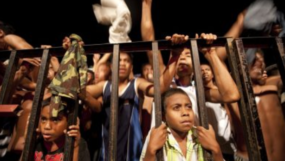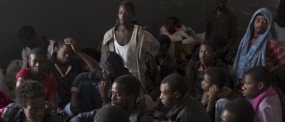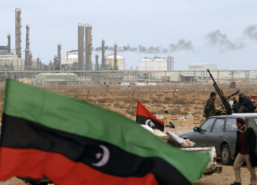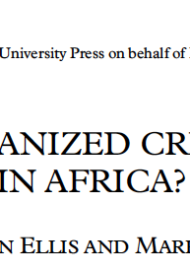Posted on 09 Jul 2019
This brief draws on field research conducted on trafficking in persons in four protracted conflicts in Africa – Central African Republic, Libya, Nigeria and Somalia – to explore what constitutes realistic and effective responses to trafficking in persons in conflict contexts. It argues that counter-trafficking efforts should be part of broader work to enhance community resilience to organised crime and to address long-standing needs, while responses which rely on the state, or approach the issue through a criminal lens, should be treated with caution.



